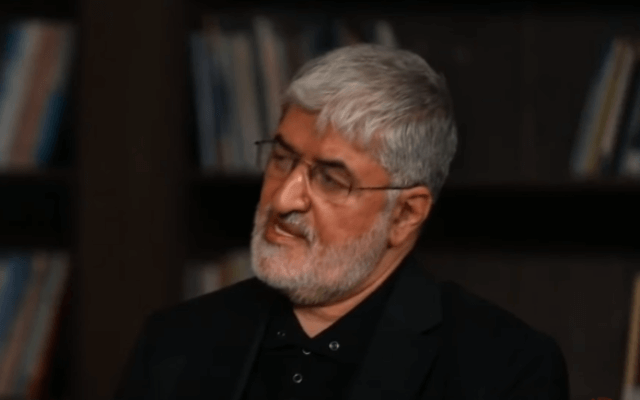A former member of Iran’s parliament said in an interview with Iranian media on Sunday that Iran had always intended to build a nuclear bomb that would have been used as a “means of intimidation,” according to footage captured and translated by the Middle East Media Research Institute (MEMRI).
“When we began our nuclear activity, our goal was indeed to build a bomb,” former Iranian politician Ali Motahari told ISCA News. “There is no need to beat around the bush,” he said.
His statements contradict Iran’s ongoing insistence that it never sought to build nuclear weapons — a claim rejected by Israel and Western intelligence services.
Motahari noted that the objective of building a bomb was pursued and supported by “the entire regime, or at least, the people who started this activity.”
Asked by the interviewer if the people behind Iran’s nuclear program intended to use the bomb, Motahari said, “No, we wanted to build it as a means of intimidation,” citing a verse from the Quran: “Strike fear in the hearts of the enemy of Allah.”
Motahari argued that Iran’s failure in that sense was not keeping its plans a secret for long enough.
“With regard to what we started… If we could have kept it [a secret] until we performed a [nuclear] test, then it would have been a done deal. Like in Pakistan,” he said, arguing that countries like Pakistan and North Korea, believed to possess nuclear bombs, “are taken into consideration” on the global stage.
Having a nuclear bomb “would not have been a bad thing,” Motahari said. “All I am saying is that since we started, we should have proceeded to the threshold.”
Asked by the interviewer whether his comments might affect the ongoing negotiations with the West over Iran’s nuclear program, Motahari said “Nobody notices what I am saying… I have no official capacity. I’m saying these things on behalf of myself.”
He added toward the end of the interview that Iran’s Supreme Leader Ali Khamenei currently opposes the idea of building a bomb.
Negotiations over Iran’s nuclear program, known as the Joint Comprehensive Plan of Action (JCPOA) have been at a standstill, largely due to the Iranian demand that Washington remove the Islamic Revolutionary Guard Corps (IRGC) from the State Department’s list of Foreign Terrorist Organizations.
Israel has lobbied publicly and privately against the move. In a phone call with US President Joe Biden on Sunday, Prime Minister Naftali Bennett reiterated Jerusalem’s stance against the US heeding Iran’s demand.
US State Department spokesman Ned Price did indeed appear to reject the Iranian demand when pressed on it during a press briefing last Monday.
“If Iran wants sanctions lifting that goes beyond the JCPOA, they’ll need to address concerns of ours that go beyond the JCPOA,” Price said when asked about the Revolutionary Guards’ delisting. “They will need to negotiate those issues in good faith with reciprocity.”
As Iran has not expressed a willingness to budge on non-nuclear-related issues, Price’s remarks appeared to put to bed the possibility of a unilateral delisting by Washington, even if Tehran was making it a condition for returning to compliance with the JCPOA.









